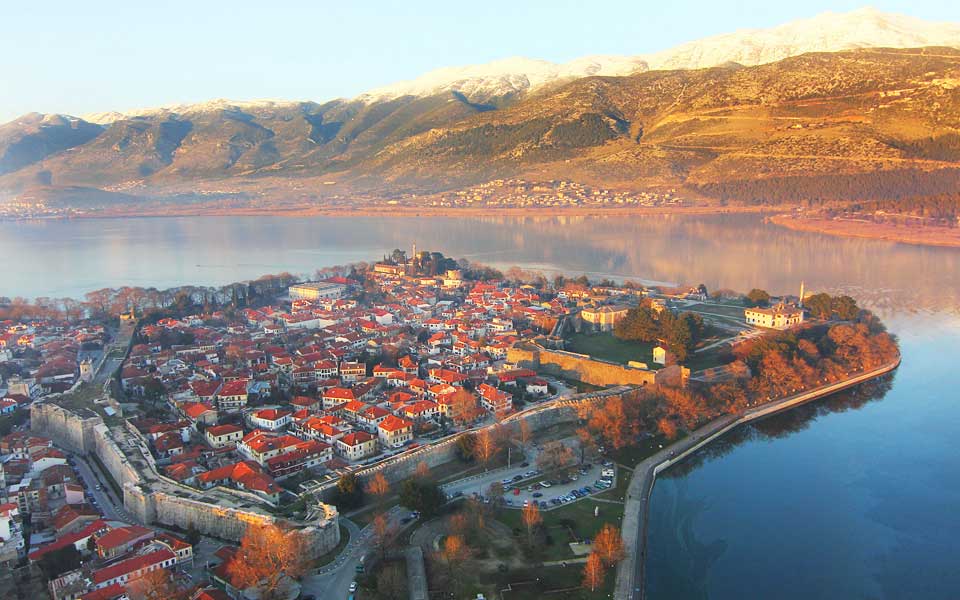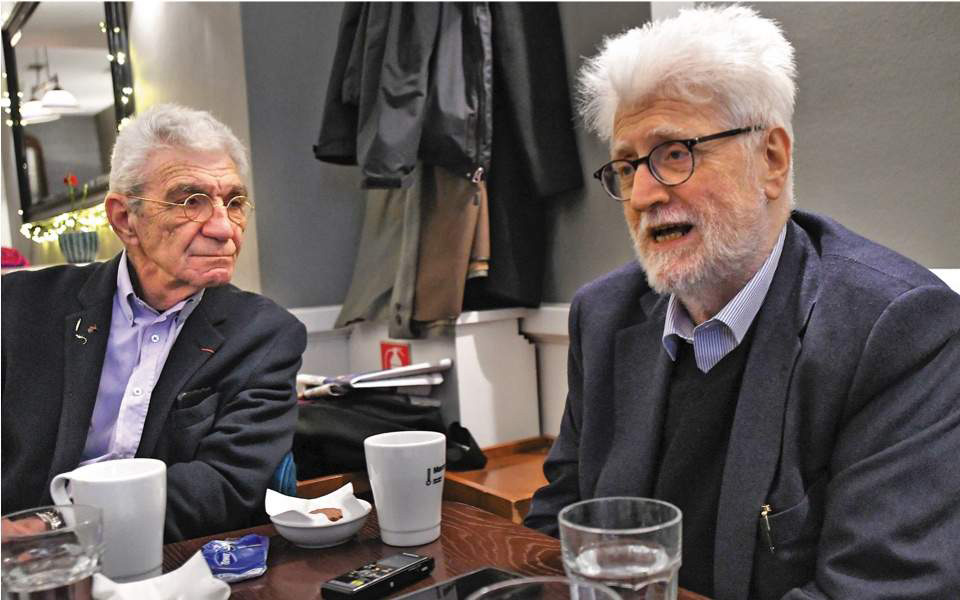The election of Greece’s first Jewish mayor, Ioannina’s Moisis Elisaf, was news that was heard around the world last May. Pundits had been dismissive of his chances when he first announced his candidacy, but by the second round it was evident that the respected academic, a professor of internal medicine at Ioannina Medical School, was a serious contender in the race for the northwestern city.
“Seriously? You’re going to vote for a Jewish mayor?” his opponents and other parts of the local community wondered – albeit discreetly – chiding his supporters.
“Some of the other parties used my religious identity extensively in the pre-election period. Not openly, but tacitly,” he told newspaper Kathimerini in a recent conversation at a cafe in the northern port city of Thessaloniki, where Elisaf had read poems by George Seferis the previous night.
Other opponents spread rumors that Elisaf was working for Israel.
“A typical move that I think ultimately worked against my opponent, the incumbent at the time, was his last TV interview between the two rounds, when he had a photograph of the Virgin Mary in the background to underscore that he’s a Christian and the other guy is against Christ. Well, it didn’t work,” he says.
At the end of the day, Elisaf was not just “a Jew” looking to run for office. He is a respected scientist, an active citizen and a spokesman for one of Ioannina’s historic communities, which together with Christians, Muslims, Arvanites and Slavs once composed the multicultural and multireligious profile of this beautiful city, before being decimated in World War II, when 1,900 of the city’s 2,500 Jews were sent to Nazi concentration camps. Only 100 returned.
“We have become such a small community with many elderly people,” Elisaf says, adding that a number of efforts are under way to salvage the city’s rich Jewish heritage, including the preservation of the Jewish synagogue – a 200-year-old historic monument and the biggest in Greece – the huge cemetery with thousands of graves, and old houses in the historic center.
“Only 20-22 turned up among the 20-odd thousand votes I got on the second Sunday and I’m not at all sure that they all voted for me,” Elisaf says when asked whether the Jewish community, which now numbers just 40-50 members, supported his candidacy.
The Ioannina mayor agrees that his election was a blow to anti-Semitism. “It was a resounding response from citizens who blocked their ears to the voices of intolerance. The citizens measured me against the standards that anyone running for office, be it in Parliament or the city or anywhere else, should be held to,” he says.
Is his faith an obstacle to running a city in which the Christian element is so widely predominant?

© Chrysostomos Fountas
“Running the city is not the hard part; being elected was,” says Elisaf. “I do my duty as would any citizen in my position. Since you ask, I go to all the religious ceremonies, the national anniversaries, New Year’s and official church services, as the city’s mayor must. I have a very good relationship with the metropolitan bishop, who has his own show on the municipal radio. And soon we will be honoring Archbishop Anastasios [of Albania] and Ecumenical Patriarch Vartholomaios, who are expected to visit Ioannina in the spring. So, no problem.”
One of Elisaf’s first orders of business on being elected was to throw open the doors of his city, traveling to Albania and Cyprus, while he is also planning trips to Turkey, Israel and several European capitals in a charm offensive to promote Ioannina.
“Ioannina has such a rich history. It was a Balkan hub for centuries, a city where many different ethnic and religious groups enjoyed a relatively peaceful coexistence. It is a beautiful city, located right at the crossroads of major highways running across Greece and the broader region, and it has a university with over 20,000 students, so there is every reason for it to become another Balkan hub.
“There are four Ottoman mosques. With the exception of Xanthi and Komotini, no other Greek city has so many mosques. It has a multitude of monuments in the historic center, like the Ottoman baths and library and the moat of Ali Pasha, and the island in the lake alone has six Orthodox Christian monasteries, coming third after Mount Athos and Meteora,” says the mayor, highlighting his city’s attractions.
Elisaf’s diplomatic drive has been dismissed as a public relations stunt by critics who call him “the Jewish Boutaris,” in a disparaging reference to the former extroverted mayor of Thessaloniki, Yiannis Boutaris.
“I take that as a real compliment and I hope, honestly, that I can live up to the challenge,” says Elisaf. “I think that we are both open-minded people who see the challenges that lie ahead and are aiming for an outward-looking policy that offers the only possibility of economic advancement for our cities today. Yiannis Boutaris transformed Thessaloniki from a conservative, phobic city into a cosmopolitan center of the Balkans. And this did not happen out of the blue.”
Boutaris was sitting at the next table during our conversation and couldn’t wait to jump in. “I really like Moisis,” he said. “I’ve only met him once before, but everything I’ve heard about him is good. He’s an open-minded, serious and peaceable person, in a beautiful city like Ioannina, which has everything it needs to shine internationally.”
Elisaf is also proud of his city’s response to the migrant and refugee crisis, saying that it is currently hosting 1,300 people at an open camp, a few dozen at hotels and around 1,000 in apartments.
“Coexistence between the local community and the refugees has been relative smooth,” he says. “They go to school – the students’ inclusion has been without problems – and, barring a few problems near the camp, there has not been much tension with the locals.”












